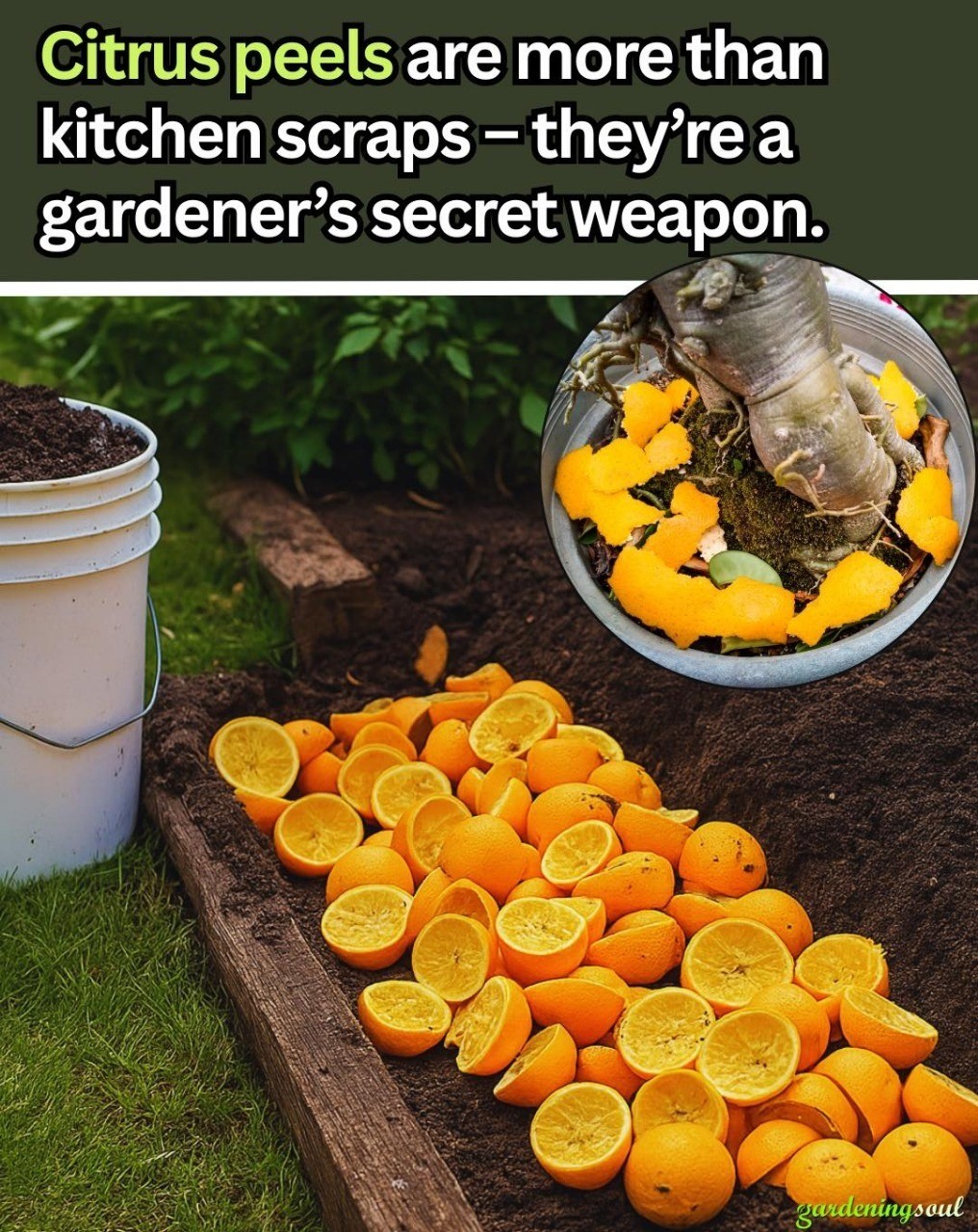Citrus fruits like oranges, lemons, limes, and grapefruits are household staples – but did you know that the peels you usually toss can be incredibly valuable in your garden?
Citrus peels are packed with natural oils, nutrients, and compounds that can benefit your plants, soil, and even protect your garden from pests.
From natural fertilizers to organic pest deterrents, citrus peels offer countless eco-friendly gardening solutions.
Instead of throwing citrus peels into the trash, consider giving them a second life in your backyard.
In this comprehensive guide, you’ll learn the 15 most useful citrus peel uses in the garden – practical, sustainable tips that turn kitchen waste into garden gold.
Why Citrus Peels Are So Useful in the Garden
Citrus peels are more than just aromatic byproducts of your favorite fruits.
Here’s what makes them so powerful for gardening:
- High in nitrogen, phosphorus, potassium, and calcium
- Contain essential oils with insect-repelling properties
- Naturally acidic – helpful in balancing soil pH
- Biodegradable and compost-friendly
- Have antifungal and antibacterial properties
With these natural features, citrus peels can serve as fertilizer, mulch, compost enhancer, pest repellent, seed starter, and more.
1. Natural Pest Repellent
Citrus peels are rich in limonene, a natural compound that repels many common garden pests such as: Aphids, Ants, Mosquitoes, Slugs, Flies, Whiteflies.
How to use: Scatter chopped citrus peels around the base of plants prone to pest attacks. You can also rub the inside of the peel directly on leaves or stems to create a natural repelling barrier.
Replace the peels every few days for best results.
2. Compost Booster
Citrus peels are high in nitrogen, making them an excellent addition to your compost pile. They balance the carbon-heavy “browns” (like dried leaves or paper) with their nitrogen-rich content, helping decomposition move faster.
Tips:
- Chop or shred the peels to speed up breakdown.
- Avoid adding too many at once – they can slow composting if overused.
- Mix well with other organic materials to avoid strong acidity.
3. Soil pH Adjuster (Acidifier)
If you grow acid-loving plants such as blueberries, azaleas, hydrangeas, or rhododendrons, citrus peels can help lower the soil pH naturally.
How to use: Dry the citrus peels, grind them into a powder, and sprinkle a thin layer over the soil. Repeat monthly during the growing season for best effect.
4. Homemade Citrus Peel Fertilizer
CONTINUE READING ON THE NEXT PAGE 🥰💕

